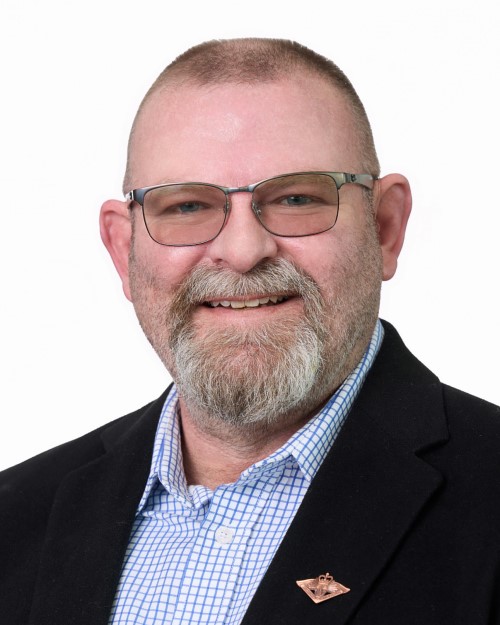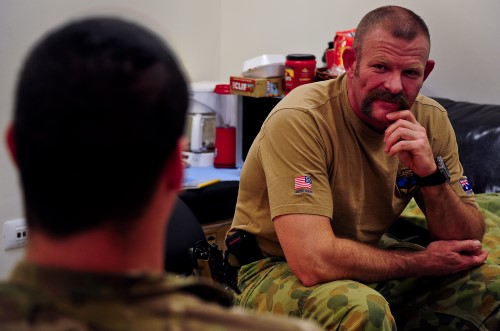Introducing DVA’s inaugural Chief Psychiatrist – Associate Professor Jon Lane

The Department’s new chief adviser on mental health policy and programs brings expertise direct from the front line.
DVA has created a significant new executive position to provide the Department and our clients with dedicated psychiatric expertise.
Reporting directly to the Secretary, DVA’s first Chief Psychiatrist, Associate Professor Jonathan Lane, leads the psychiatric, mental health and clinical governance work in policy and programs across the Department. His extensive military, medical and psychiatry experience strongly supports a direct connection and deep understanding of veteran needs.
Jon (as he prefers to be known) is looking forward to leveraging that experience in the job.
‘I experienced my own mental health struggles after my deployment to Afghanistan,’ Jon says, ‘so I am a firm believer in providing military- aware mental health support to veterans, current ADF personnel, and their immediate families.’
Jon enlisted in the Australian Army in 1989. He completed a psychology degree parttime while working as a soldier before being accepted into Medicine as an Army-sponsored medical student in 2000. During 2007–2010, he worked as a Regimental Medical Officer for the Army, then transferred to the Reserves to undertake his psychiatry training in Hobart.
Jon continues to serve in a range of Reserve roles and is currently a Lieutenant Colonel.
In 2013, Jon deployed to Afghanistan as an embedded psychiatric provider with the US Role 3 Multinational Medical Unit in Kandahar for 6 months, where he was the first ADF psychiatrist to be embedded with US forces. This experience gave him direct exposure to the immediate consequences of combat, as well as the acute impact it has on the service personnel involved in operations.
This was a pivotal moment in both his life and career: ‘It gave me a concrete personal insight into operations, operational mental health, and the consequences,’ says Jon.
Post-deployment, Jon experienced challenges known to other veterans when transitioning from operations: depression, PTSD, burnout, and having to deal with the impacts on himself and his family. He navigated all of this while concurrently treating many of his patients for similar issues.
Jon now brings this lived experience to his work, both in informing Departmental policy and procedure, and assisting others to understand the veteran experience:
‘My passion for improving the mental health of military, veteran and emergency services personnel comes from my lived experience, as well as the burden of responsibility I feel for my mates,’ he reflects.
‘It’s important to me to help service personnel understand their sense of service identity, service culture, the transition process from the ADF, and to improve their mental health, wellbeing and social functioning.’

Driven by this passion, Jon was awarded a 2015 Churchill Fellowship to pursue these goals. He developed and delivered culturally specific peer-led group programs for military, veterans and first responders to help them understand and manage the impacts of their service. His most recent is an 8-week Stress, Resilience and Functioning program currently being delivered by Open Arms in Tasmania. (See Vetaffairs August 2024.)
Jon believes that service personnel, including those who struggle with exposure to traumatic events, need first line interventions such as these forms of community-based programs rather than relying solely on mental health clinicians.
‘Programs that focus on improving functioning, delivered by people who have “been there and done that”, without medicalising or pathologising their experiences, are an important part of recovery,’ he explains.
Jon’s commitment to mental health extends beyond research and clinical practice. He does archery as both a sport and an activity that improves mental wellbeing and was the archery coach for the Australian Invictus Games team from 2017 to 2022.
Jon is the current chair of the Network for the Mental Health and Wellbeing of Military, Veterans and Emergency Services Personnel at the Royal Australian and New Zealand College of Psychiatrists. He has submitted evidence to various commissions of inquiry, including the Royal Commission, and is an accomplished academic.
Jon sits on a number of advisory groups for veterans and first responders. He is also actively involved with ex-service organisations and delivers teaching and training to a wide range of organisations for these personnel.
‘My philosophy is that as veterans, we need to help ourselves,’ he says. ‘I see my job as helping people do that – empowering them to be the best they can.’
We look forward to tapping into his expertise to improve the mental health of veterans – welcome Jon!
Image: Jon Lane at the Role 3 Medical Treatment Facility, Kandahar Airfield, Afghanistan